- Home
- Roddy Doyle
A Star Called Henry Page 5
A Star Called Henry Read online
Page 5
I drove my mother out onto the step. She had to get away from walls. Already big and pregnant with the next one, she fumbled her way down the black stairs, trying to hold me on her suffering hip. She sat on the cold step and sweated. She waited for twilight and night. I beat her. I climbed onto her hair. I pressed into the breasts that were no longer mine. I scratched my sores and bled for her. She rocked me and soothed me, waited for her stars. It got colder and darker. I scratched her face. I puked white loads on her shoulders and lap. She rocked me, rocked me. She looked up at the sky and waited for the grey to turn black. She wrapped me in her shawl. She trapped my hands and legs. The North Star appeared. I fought against her arms. More stars lit up and twinkled. She held me tight. She gazed up at all the stars. She wandered from one to the next. She wrapped me tight in her shawl and lifted her free hand. I struggled to escape; I puffed and shook and spat. She lifted her hand and chose a star. Her index finger swayed, then stiffened.
—There he is, she said.
I bucked and tossed. I screeched blue murder.
—There’s my little Henry.
The star grew and shimmered. Blood ran from my nose, in a rush that failed to shock her. She put her shawl to my nostrils and continued to gaze at her star. She wasn’t being vindictive. There was no cruelty in her pointing. She wanted me to see him, and him, far away, to see me. Henry met Henry. She hoped we could be friends, that we could love each other. She smiled as I screamed. That was what my father saw the moment I was born; the shooting star was big brother Henry charging across the sky in a fit of celestial jealousy. If my father had listened too, if Granny Nash hadn’t distracted him, he’d have heard the star’s wail slicing the heavens—
—Maaa-meee!
She turned my head to the star and held it firm.
—See? See?
Years later, when I lay under my blanket on the lonesome prairee, full of beans and disgruntlement, or I sat on a rock in the Utah Desert and shivered, I’d gaze up at the huge, cold, black-blue sky and I’d find the star - I always knew its sly twinkle and fade, it could never hide from me. I’d stare at it, fix my eyes on it and refuse to let them stray to any of the other millions of its still and shooting siblings. I’d stare at my star till I knew I had it. I’d make a copper rope of my gaze and I’d lasso the twinkling bollocks. Then I’d yell.
—My name is Henry Smart!
I’d watch it shimmer and fuss. My voice was hard and sure and triumphant, hard as the rock I was sitting on, cold as the air that was lying on top of me. There was no one else to hear me. My nearest neighbours were as distant as the stars above me.
—My name is Henry Smart! The one and only Henry Smart!
I’d watch its gases splutter and die.
—My name is Henry Smart!
I’d yell until I could no longer see its shadow against the blueness of the night, until there was nothing out there. I killed my brother every night.
Three
He went to work every evening. He kissed my mother. He kissed me. He patted his coat, then left us. He sat on the landing floor outside and put on his leg. Then he was gone.
Off to his work.
Henry Smart, the tap tap man. He stood outside Dolly Oblong’s kip house. Henry the Leg. In the week after my birth, he went at his work with new enthusiasm and vim. My birth had freed him. There’d be no more punishments; there never had been any. The earlier deaths had been bad luck. Just that. Dead children, thrown on top of all the city’s dead children. Henry looked at the certainty barrelling through my arms and legs and decided that he could do whatever he wanted. He stood on the steps of Dolly Oblong’s, a new man yet again. A new man with a new leg. The ships spat out ruffians and bowsies from far-flung, savage corners of the world, hard men tired of riding each other. They scoured the city with pockets full of itchy cash and found my father on the step of the brothel, between them and the women they dribbled for. They pointed at his leg and laughed and said things in languages that my father had never heard. They started up the steps, these nut-tough bastards, and suddenly the leg was gone and, even more suddenly, they were on their backs and bawling. They looked at my father rejoining his leg. They saw the warm gleam of the streetlamp purring in the wood, and the same warmth in my father’s face. They went away, and carried the legend of the leg back to the creaking, tinder-built outposts they’d sailed from. Bollixes from Stoneybatter got the same treatment. Men who had never been to sea in their lives, who’d never even gone down to the docks to look at it, men whose only language was a few dozen words of nose-propelled English, crawled away from the steps of Dolly Oblong’s with cracked skulls and wilting langers. Only the meekest and the mildest and, of course, the wealthy regulars got past my father in that first week of my life. He swung his new leg with a conscience as clear as my blue, blue eyes.
And after that, after he’d named me Henry, he still cracked heads, and more and more heads. He brought the leg down and took chunks out of it. He battered and hammered. One small thing, a name; one tiny mistake, a moment of sentimentality, and that beautiful week became a mocking memory. Melody cried and closed her face to him; she buried herself in her shawl. She started grieving a week after the birth of the healthiest child anyone had ever seen. My father found her at dawn on the steps outside the house looking up through the fog to where there were no stars. She was shivering, soaking, me inside the shawl fighting her. He took me and looked. My glow was now a flake-skinned crust, scratched raw, cracked by the cold. My baby blues were a fierce black, throwing outrage, revenge at him. I was the baby with the bloodshot eyes. He kissed my hard cheeks and tried to call me Henry. He brought us up to our room. He pretended that his wife saw him, pretended that his son’s rage was an infant’s fun.
—There there, there there.
He put us to bed and sat on the chair. He took off his leg. I screamed and he threw the leg at the fireplace. It bounced back out like a skittle and rolled along the floor and stopped at his foot, like a dog wanting to be petted. He put the leg back on, picked me up and tried to sing to me. Oh the bridge it broke down. I heard the gulps that broke the song’s back. He stopped and dropped big tears onto my head.
He put me back into the bed beside my mother. He moved gently around the room while we slept. He waited for things to get back to normal, the return of that wonderful week. He waited for it all to come back. Every day. He never slept. He guarded us all day and waited. And he went to work every evening, at ten to six. He kissed my mother. He kissed me. He patted his coat, then left us. He sat on the landing floor outside and put on his leg. Then he was gone.
Off to his work.
And then the violence and hurt poured out of him. He raged and whacked. He roared and blew. The few who still braved the steps walked into the shadow of my father’s towering anger. He defended the steps so efficiently that there was one night when no one at all got past him. No one even tried to. And one of the girls opened the door a chink and called him in.
—Herself wants you.
And he went inside. Into the smells and hints that men paid for. The darkness and promises. He went up the stairs to Dolly Oblong’s room. Up the carpeted stairs, where his tap tap carried no threat. It was quiet. No grunts or laughter, braces snapping, beds protesting. Only the piano downstairs, some tune that Henry didn’t know or like, some plonky-plonky thing that you had to be drunk to feel. He hadn’t been drunk in years, since the day he met Melody. He was nervous now. He made his way down the dark red corridor; behind each shut door a lonely girl.
He was there. He knocked on Dolly Oblong’s door. It was a good, thick door; his knock was a small thing on it.
—Come in.
He opened the door.
—Come in.
He stepped into Dolly Oblong’s room for the first time. It was dark. He saw a line of light where the closed curtains didn’t quite meet and the strict shapes of furniture.
—Shut the door.
He heard the door’s canvas cover settling ba
ck into place. He stood there in the dark and waited. He could hear no breathing. A sideboard, a chair. He began to know the room. There were no colours yet. He was standing on a rug that rubbed his ankle.
Now he heard a neat cough.
—What is the weather like?
—Grand, said Henry.—Not too bad.
—And how is your family?
—Grand, said Henry.
He could see more chairs now, big armchairs, and there was a large, high bed right in front of him but he couldn’t find the woman who was talking to him.
—The baby?
—Grand, he said.—Gameball.
The bed creaked.
—The baby has both the legs?
—Yes.
—Good. And a brain?
—Yes.
—Good. But you must not be the father. A fool like you could not produce such a baby.
The bed groaned again and a black mountain grew in front of Henry. A head took shape, and shoulders. A head that was made huge by hair that would have been plenty for five women. It was a wig, Henry knew. It was one of the things he knew about his employer: she was bald. One of the very few things he knew.
—What kind of a nincompoop are you? she said.
He took the question seriously. He stayed quiet. He began to see her, not just her outline. She was sitting up now. The wig was massive and brown. She was wearing a red gown, or something. She shifted, and powder quickly reached Henry’s nose.
—Well? she said.
Another thing he knew about her: she was twenty-five. She looked and moved like a monument but she was younger than he was. It had been her brothel since he’d been the bouncer; she couldn’t have been far past fifteen when she became the madam.
—Has your tongue gone the same way as your leg?
—No.
—Good.
She sighed, and peppermint joined her powder.
—I am a businesswoman, she said.
There was a hint of the foreigner in her words, just now and again. Nothing as strong as an accent, just a bend or a tiny fracture in a phrase. Or each word precisely delivered where the locals took shortcuts.
—A businesswoman, she said.—Yes. And, Mister - tell me your name.
—Henry.
—Henry and?
—Smart.
—And, Mister Smart, what is my business?
—Em—
—Men come into my house, they fuck my girls and then they leave with less money. That is my business. Yes?
—Yes, said my father.
—They drink some gin and listen to the piano player murdering my piano but, essentially, they fuck my girls. Is that right?
—Yes.
—Yes, she said.—Prostitution. That is my business. She stopped. He was sure that she expected something from him.
—Yeah, he said.
—Yeah. Yeah yeah yeah. The men are happy, my girls are happy, I am happy. Say Yeah.
—Yeah.
—No. I am not happy. Why not?
—Em—
—Because there is no business taking place in my house. Because you will not let it take place. You will not let the men in to fuck my girls. There is not one man in my house at this moment. Except you. And you do not count, Mister Smart.
—Sorry, said Henry.
—Your apology I accept, she said.—But, still, I must dispose of you.
How? he wondered. He considered telling her about his dead children, his son’s name, his fight with God. But he couldn’t.
—I pay you how much?
—Fifteen shillings a week, said Henry.
—I will pay you fifteen shillings and fifteen shillings more and you will go. You are not good for business.
He was getting the sack. He wasn’t going to be flung into the Liffey or fed to the pigs beyond Tallaght. It was only the sack. There’d be other jobs. There was always work for bullies, or other work.
—However, said Dolly Oblong.
Henry waited. He felt stronger now. He knew: she wasn’t even going to sack him.
—However, she said again.—However, Mister Smart, I have other business ventures. You know this. I have partnerships.
She was a grand chunk of a woman, Henry decided. Red suited her. Especially in the dark.
—Mister Gandon speaks highly of you, she said.—You are efficient. You are cautious enough not to ask questions, stupid enough not to care. He likes this.
—Good, said Henry.
He was being insolent, he knew. But not too insolent. Fresh peppermint arrived at his nose. He liked it.
—Yes, said Dolly Oblong.—I am glad that you say Good. Mister Gandon tells me that you do a very professional job. This makes me happy.
He decided against more insolence. Stupid first, now he was being cautious. Mister Gandon knew his man.
—Yes, said Dolly Oblong.—There are two Mister Smarts. One makes me unhappy, the other makes me very happy. Which Mister Smart am I addressing? Well?
—I’ve always admired Mister Gandon, said Henry. Never met the man, he said to himself. Then, again to himself: She’s Alfie Gandon. It made him smile. It was brilliant; it thrilled him. He liked her even more.
—Good, she said.—Good.
He wanted to serve her.
She clapped her hands. Powder and sin danced around his face. He decided to shave. And brush his coat.
—Very well, she said.
And varnish his leg.
—I will not dispose of you.
He waited for more.
—I am going to give you a second chance, said Dolly Oblong.
—Thank you, said Henry.
—But you must allow the men to come into my house and spend their money.
—Yes, said Henry.
—That is how society works. Money. Making it, taking it, spending it. Without money we are nothing, not even animals. We are not efficient enough to be animals, Mister Smart, so we make money instead. So. You must give the men the opportunity to spend their money. This makes more money. It is good for society. It is good for the city, the country and the Empire. Everybody. Food, clothes, roofs over our heads. Because men like to fuck nice girls. You may go.
What a woman, all the same. He found the door. A leader, a genius and a floozy. He was close to swooning, falling over. Dolly Gandon, Alfie Oblong. And dozens of other mixtures, more than likely. And, maybe, his name in the mixing bowl. The open door brought some light.
—Mister Smart?
—Eh—
He turned to face her.
—Yeah. Yes?
There was more of her to see now. A shoulder he wanted to kiss, hair he wanted to drown in, or just touch. A wig - he didn’t care, no one knew for sure. It looked real enough, better than real. Teeth - Jesus, her teeth. He wanted to kneel at the bed and whimper. And offer himself. Give her his leg to beat him with.
—Yes? he said, hanging on to the door.
—You never fuck my girls.
—No.
—Why not?
—I’m married, he said.
She smiled. He saw teeth, and more teeth. False, like the hair? It didn’t matter. The lips were real and impossible, red, huge and open.
—How lovely, she said.—You are a breath of fresh air, Mister Smart. You may go. But also.
He waited.
—From now on I will pay you twelve shillings a week.
My father closed the door. A new man. Again, yet again. A slave this time. What a woman. He was floating. She had force to match God’s. She was God. She was her own invention - like him, but successful - her hair, teeth, her name, everything about her and around her. She’d created her own world and made it happen. She pulled strings from her bed - Henry almost fainted at the thought - and all of Dublin shook. People died, people lived while she sucked pepper-mints. She was the Queen of the city, and nobody knew. Except herself and, now, my father. My father was in love.
Side by side, they’d take on God and win. They’d rule the wo
rld. He’d never let a name destroy his life again. They’d invent and change names as it suited them - Dolly Gandon, Alfie Oblong, Dolly Smart. He’d be the puppet at the end of Dolly Oblong’s strings. Pinocchio Smart. He already had the wooden leg. He’d be a good boy for her and it would become flesh.
There was a man at the bottom of the steps. Henry stood aside, and the man came up and ducked past him.
—They’re inside waiting on you, said Henry.
He knew that Dolly Oblong had heard the door opening, would now hear it closing. She would hear another door inside opening, money being spent. She’d be pleased. She’d think of him. She was already thinking of him. There were more men, coming up the street. More money for Dolly Oblong. There was no anger left in my father, none at all, no bitterness, no past. He really was a new man.
I grew.
I grew and stretched and raged around the room, filled the place with my fists and feet. I got my knees off the floor and walked. I hit the walls and clawed them. I broke through the clothes that were put on me. I wailed and cursed, hard words that came through the open window to me. I only stopped to swallow snot and any food that got in my way. My mother grew fat on the air that I left her. I slept where I fell.

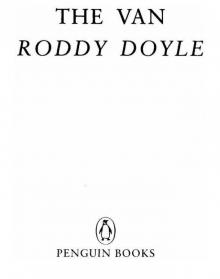 The Van
The Van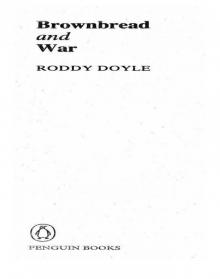 Brownbread & War
Brownbread & War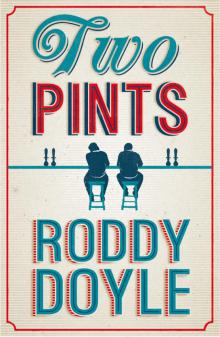 Two Pints: A Collection
Two Pints: A Collection Rover and the Big Fat Baby (Giggler 4)
Rover and the Big Fat Baby (Giggler 4)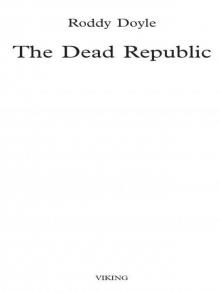 The Dead Republic
The Dead Republic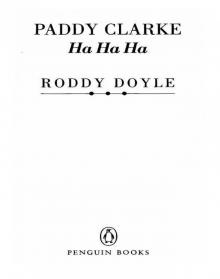 Paddy Clarke Ha Ha Ha
Paddy Clarke Ha Ha Ha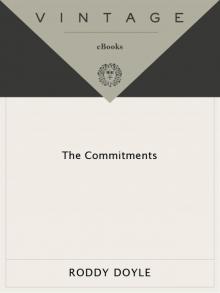 The Commitments
The Commitments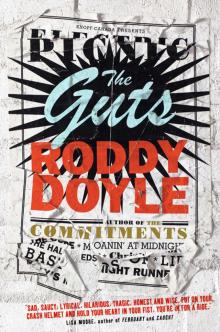 The Guts
The Guts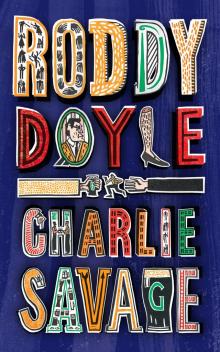 Charlie Savage
Charlie Savage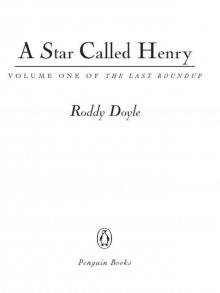 A Star Called Henry
A Star Called Henry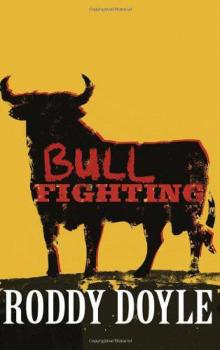 Bullfighting: Stories
Bullfighting: Stories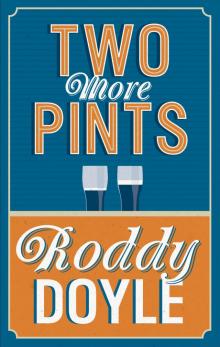 Two More Pints
Two More Pints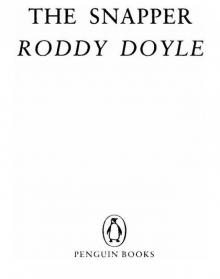 The Snapper
The Snapper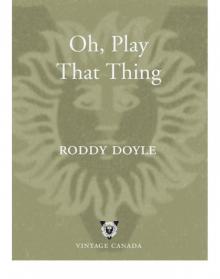 Oh, Play That Thing
Oh, Play That Thing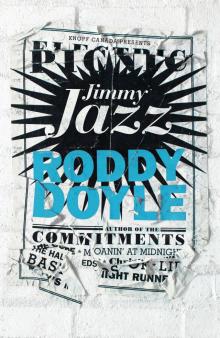 Jimmy Jazz
Jimmy Jazz Paula Spencer
Paula Spencer Wilderness
Wilderness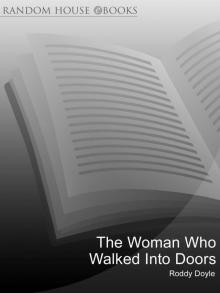 The Woman Who Walked Into Doors
The Woman Who Walked Into Doors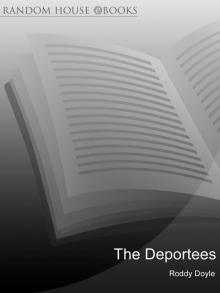 The Deportees
The Deportees Rover and the Big Fat Baby
Rover and the Big Fat Baby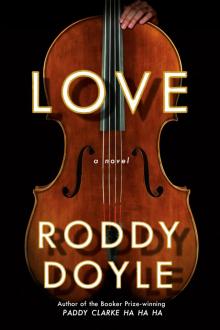 Love
Love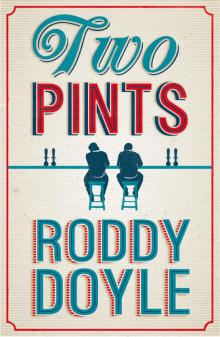 Two Pints
Two Pints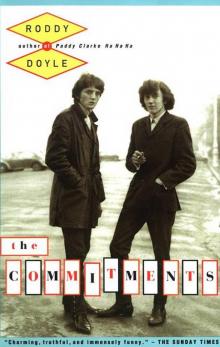 The Commitments b-1
The Commitments b-1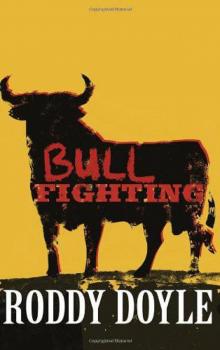 Bullfighting
Bullfighting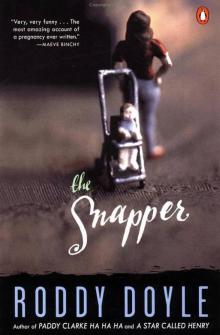 The Snapper b-2
The Snapper b-2